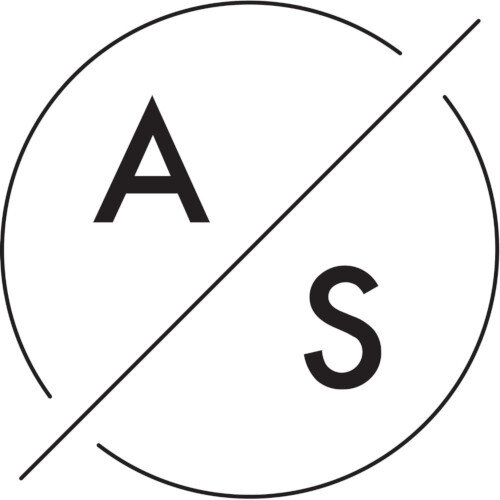Best Criminal Litigation Lawyers in Acharnes
Share your needs with us, get contacted by law firms.
Free. Takes 2 min.
List of the best lawyers in Acharnes, Greece
About Criminal Litigation Law in Acharnes, Greece
Criminal litigation in Acharnes follows the national legal framework of Greece. Criminal matters - from minor offences to serious felonies - are governed by the Greek Penal Code and the Code of Criminal Procedure. Criminal cases that arise in Acharnes are handled within the Attica judicial district, with investigations carried out by the local police and public prosecutor and trials conducted in the competent criminal courts in the region. As in the rest of Greece, criminal proceedings include distinct stages - police investigation, prosecution by the public prosecutor, pre-trial measures, trial, and any appeals - and are shaped by principles such as the presumption of innocence and the right to a defence.
Why You May Need a Lawyer
Criminal proceedings can have serious consequences - imprisonment, fines, criminal records and collateral effects on employment, travel and family life. You may need a lawyer if you are:
- Arrested or detained by the police.
- Under investigation as a suspect in a criminal matter.
- Charged with an offence and facing a trial.
- A victim seeking to file a criminal complaint or obtain compensation for harm.
- Facing pre-trial measures such as bail conditions or pre-trial detention.
- Unsure about what evidence to preserve, how to respond to police questions, or how to prepare for court.
A criminal-lawyer will protect your rights from the earliest stage, advise on legal strategy, represent you in hearings, negotiate with prosecutors when appropriate, and explain possible outcomes and procedural options. Even when you believe the matter is minor, early legal advice can prevent escalation and protect your interests.
Local Laws Overview
Key legal sources and institutional elements relevant to criminal litigation in Acharnes include:
- The Greek Penal Code - defines criminal offences and the range of penalties that apply.
- The Code of Criminal Procedure - sets out how criminal investigations and trials are conducted, including arrest and detention rules, evidence collection, rights of the accused, and appeal procedures.
- Prosecutorial structure - Public prosecutors supervise investigations and bring charges where appropriate. Prosecutors decide whether matters proceed to trial or are dismissed.
- Police - the Hellenic Police manages crime reporting and on-the-spot investigations in Acharnes and will prepare investigative files for the prosecutor.
- Courts - criminal trials for matters arising in Acharnes are heard in the criminal courts that comprise the Attica judicial district. Different courts and panels hear misdemeanours and felonies, and serious offences may be tried before mixed courts with jurors.
- Legal aid and defence rights - suspects and defendants have the right to legal representation. Those who cannot afford a lawyer may apply for state-funded legal aid through local bar associations. Interpreters and procedural safeguards are available for non-Greek speakers.
Frequently Asked Questions
What should I do if the police want to question me?
If the police want to question you, you have the right to be informed of the reason for questioning and the right to legal counsel. You can politely refuse to answer until a lawyer is present. If you are detained, request to contact a lawyer and, if necessary, ask to inform a family member. Do not sign documents you do not understand without advice.
Can I be arrested without a warrant in Acharnes?
Police may arrest a person without a prior warrant in situations permitted by law, such as when a crime is being committed, an immediate risk exists, or a suspect is caught in flagrante delicto. After an arrest, the police must follow procedural rules - including taking the person before the public prosecutor or court within a short period - and must inform the arrested person of their rights.
How long can I be held before being charged?
Detention before charge must comply with the Code of Criminal Procedure and constitutional safeguards. Authorities must present detainees to the public prosecutor and follow required timelines. The exact duration can vary based on the nature of the offence and the progress of the investigation. If you are detained, seek immediate legal advice to ensure your rights are protected.
What are my rights during a criminal investigation?
During a criminal investigation you generally have the right to remain silent, the right to legal assistance, the right to be informed of the allegations and charges, and the right to an interpreter if you do not speak Greek. You also have the right to challenge unlawful acts by authorities and to request access to evidence through your lawyer as the procedure allows.
Will I necessarily go to trial if accused?
Not always. Some cases are dismissed or resolved before trial by the prosecutor or through settlement measures where applicable. Certain minor offences may be handled through fines or administrative measures. For more serious offences, the prosecutor may press charges and the case will proceed to trial. Your lawyer can advise about possible outcomes and options to resolve the matter without full trial, when appropriate.
What kinds of penalties could I face if convicted?
Penalties depend on the specific offence and can include imprisonment, suspended sentences, fines, probation, community service or other sanctions provided by law. For some crimes, ancillary consequences may follow - for example loss of professional licenses or restrictions on travel and employment. A lawyer can explain the likely range of penalties for the charged offence.
How do I find a criminal lawyer in Acharnes?
Start with the Bar Association that covers the Attica region to find qualified criminal-law practitioners. You can also seek recommendations from trusted contacts, request initial consultations to assess experience and strategy, and ask about fees and payment terms. For those with limited means, inquire about state-funded legal aid available through local bar association offices.
What if I am a victim and want to report a crime?
If you are a victim, report the incident to the local police station in Acharnes and provide any available evidence - documents, photos, witness names. A criminal complaint will be recorded and forwarded to the prosecutor. You may also obtain legal advice to protect your rights and, when appropriate, pursue a civil claim for compensation alongside the criminal process.
Can I appeal a criminal conviction?
Yes. Convictions and certain judicial decisions can be appealed to higher-level courts according to procedural rules and strict deadlines. Appeals can involve review of facts and law or only legal issues, depending on the type of appeal. Ask your lawyer about the applicable deadlines and the grounds that can support an appeal.
Are there ways to reduce penalties or avoid a criminal record?
Depending on the circumstances and the offence, legal strategies may reduce penalties or result in alternative measures - for example plea negotiations where appropriate, diversion programs for minor offences, or suspended sentences. Rehabilitation and mitigating circumstances may also affect sentencing. A criminal-lawyer can assess whether any options are available in your case.
Additional Resources
If you need help navigating criminal matters in Acharnes, consider these resources and institutions - contact them through the relevant offices in your area:
- Local police station in Acharnes - for reporting crimes and obtaining immediate assistance.
- Public prosecutor's office in the Attica judicial district - responsible for pursuing criminal prosecutions.
- Courts of the Attica judicial district - where trials and appeals take place.
- Bar Association of Attica - for lists of qualified criminal-lawyers and information about state legal aid and representation.
- National or municipal victim support and social services - for practical and psychological support following a crime.
- Ministry of Justice and related governmental bodies - for general information on criminal law procedures and rights.
Next Steps
If you need legal assistance in Acharnes for a criminal matter, follow these practical steps:
1. Preserve evidence - keep documents, photos, messages and any physical evidence safe and note dates, times and witnesses.
2. Contact a criminal-lawyer - seek an initial consultation to understand your position, rights and options. Ask about experience with similar cases, likely outcomes and fee structure.
3. If detained or facing questioning - request a lawyer immediately, exercise your right to remain silent until counsel is present, and request to inform a family member.
4. Consider legal aid - if you cannot afford private counsel, ask the local bar association about applying for state-funded representation.
5. Follow procedural requirements - attend scheduled hearings, provide requested documents to your lawyer and comply with court orders while your case proceeds.
6. Keep records - maintain a written timeline of events, communications and steps taken in your case.
Remember - this guide provides general information and is not a substitute for personalised legal advice. Criminal cases can be complex and time-sensitive - consult a qualified criminal-lawyer in Acharnes or the Attica judicial district as soon as possible to protect your rights and interests.
Lawzana helps you find the best lawyers and law firms in Acharnes through a curated and pre-screened list of qualified legal professionals. Our platform offers rankings and detailed profiles of attorneys and law firms, allowing you to compare based on practice areas, including Criminal Litigation, experience, and client feedback.
Each profile includes a description of the firm's areas of practice, client reviews, team members and partners, year of establishment, spoken languages, office locations, contact information, social media presence, and any published articles or resources. Most firms on our platform speak English and are experienced in both local and international legal matters.
Get a quote from top-rated law firms in Acharnes, Greece — quickly, securely, and without unnecessary hassle.
Disclaimer:
The information provided on this page is for general informational purposes only and does not constitute legal advice. While we strive to ensure the accuracy and relevance of the content, legal information may change over time, and interpretations of the law can vary. You should always consult with a qualified legal professional for advice specific to your situation.
We disclaim all liability for actions taken or not taken based on the content of this page. If you believe any information is incorrect or outdated, please contact us, and we will review and update it where appropriate.









